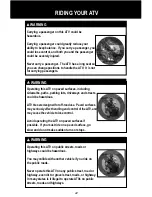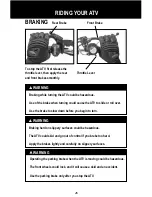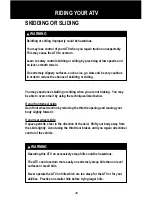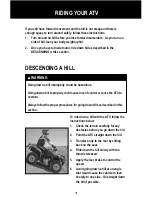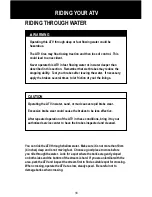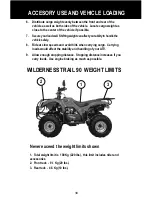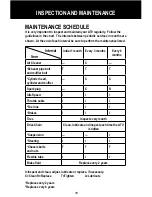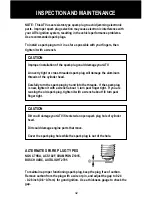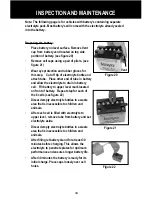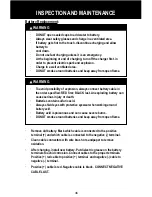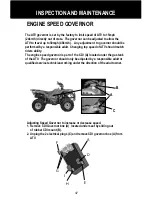
RIDING IN COLD WEATHER
Pre-ride Inspection
Check that the throttle and all control levers move freely. Make sure that the
footrests are free of ice or snow.
Move the ATV forward and backward to check that the wheels roll freely. If
you cannot move the ATV, the tires may be frozen to the ground, or the brakes
may be frozen to the wheels. If the tires are frozen to the ground, pour warm
water around them to melt the ice. If the brakes are frozen, bring the ATV to a
warmer area to thaw out the brakes.
After the engine has warmed up, check the brakes. Do this inspection on level
ground and do not exceed walking speed. Be sure to check the operation of
both front and rear brakes. If the brakes do not work adequately, stop riding
the ATV.
Bring the ATV to a warmer area to allow the brakes to thaw out. After the
brakes thaw, dry them by applying them several times before riding. If the
brakes do not regain full stopping power, ask your authorized service center
to check them before you continue riding your ATV.
Water that enters the brakes may freeze after you park your ATV. The frozen
water can prevent wheels from turning or the brakes from working. After
riding through water, mud, snow or slush, it is important to dry the brakes
before parking the ATV. To dry the brakes, apply them several times while
riding slowly. Before your next ride, be sure to do a Pre-ride inspection as
described earlier in this section.
WARNING
Operating the ATV without a properly functioning brake system could be
hazardous.
Wet or frozen brakes will increase stopping distance. This will increase your
chance of having an accident.
Be sure to inspect the brakes before riding the vehicle in cold weather as
described.
RIDING YOUR ATV



